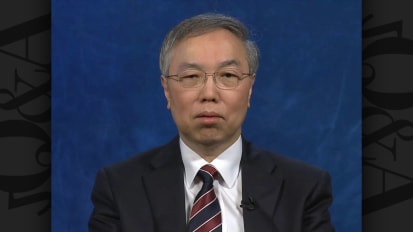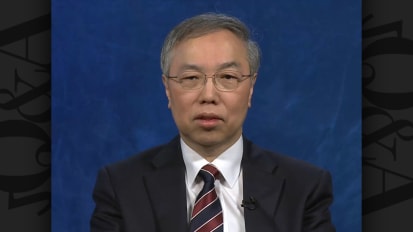Professsor Hyun Cheol Chung, MD

Professor of Medical Oncology
Director, Yonsei Song-Dang Institute for Cancer Research
Yonsei University College of Medicine
Seoul, Korea

Professor of Medical Oncology
Director, Yonsei Song-Dang Institute for Cancer Research
Yonsei University College of Medicine
Seoul, Korea
Related Videos
 Video
Video
What have we learned from the recent trials looking at the ability of NGS to drive precision-based treatments across a broad spectrum of tumor subtypes?
 Video
Video
What specific information, variances, actionable guidance, and clinical/biological interpretations are provided on a NGS pathology report? How do you apply an NGS report clinically?
 Video
Video
What is the evidence that more personalized, gene-directed cancer therapy, in which specific molecular drivers identified by NGS will produce treatments that are better aligned with actionable targets and will improve patient outcomes?
 Video
Video
How do you prioritize the genomic information provided by NGS and how do you curate the importance of alterations, rearrangements, and fusion events reported by NGS?
 Video
Video
In South Korea, how is NGS playing an increasingly important role in the Yonsei Cancer Center in the genomic profiling of cancer and to guide selection of oncology treatment?
 Video
Video
For what specific solid tumors and hematologic malignancies has NGS genomic profiling shown to be most valuable for identifying disease alleles which can reliably guide the use of molecularly targeted therapy?
 Video
Video
What is the evidence that more personalized, gene-directed cancer therapy, in which specific molecular drivers of a patient’s disease are aligned with specific therapy, will improve patient outcomes? To what extent are they improved with ...
 Video
Video
What guidance can you give in those cases in which the F1M CGP profile reveals multiple actionable mutations? On what basis would you select targeted therapies when multiple significant genomic alterations or rearrangements co-exist?
 Video
Video
What common mutations and rearrangements—among them EGFR, ALK, HER2, BRAF, RAS, MET, RET and ROS— present in tumors represent the best molecular targets for cancer therapy? Are some more predictive of success with targeted therapy than others? Why?